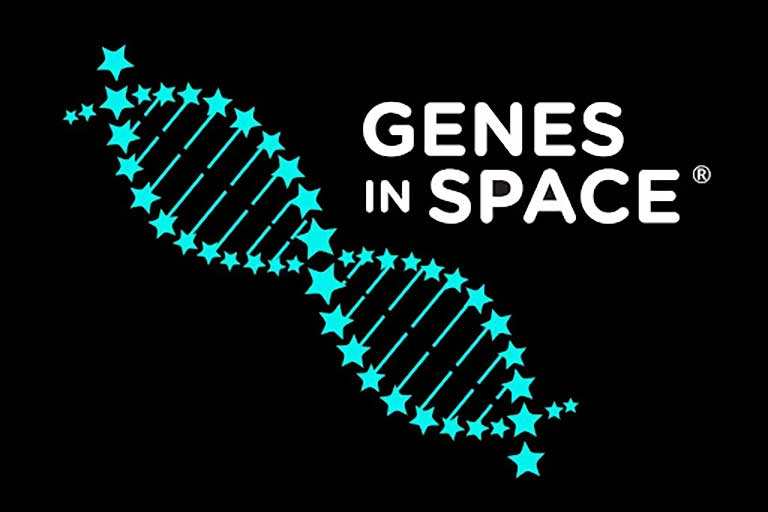Genes in Space

Contact: Marc Bliss
Email: genesinspace@miniPCR.com
Website: https://www.genesinspace.org
Focus Areas: Education and Workforce Development
Genes in Space™ is a national STEM contest that challenges US students in grades 7 through 12 to design biotechnology experiments for space. Winning experiments are performed by leveraging the International Space Station National Laboratory®, a platform for cutting-edge research and technology development that enables future space exploration. Genes in Space™ accepts applications between January and April each year. The contest is a collaboration between miniPCR bio™ and Boeing, with generous support from the ISS National Laboratory and New England Biolabs®.
Genes in Space Educational Initiatives
Genes in Space Contest:
- Since 2015, the competition has engaged more than 10,000 student participants across the US
- Students engage in self-directed learning and develop science research and writing skills as they write proposals for DNA research in space.
- Submissions are judged by a panel of scientists and thought leaders on the creative and scientific merit of the proposal.
- 25 schools receive awards each year, including a miniPCR DNA Discovery System.
Genes in Space U.S. Finals:
- Finalists work with MIT and Harvard mentors to develop 10-minute presentations of proposals.
- Finalists receive travel awards to attend the ISS Research and Development Conference.
- Finalists present proposals to a panel of expert judges at ISSRDC One winning team is selected based on the presentations.
Space Biology Camp:
- Genes in Space winners work with mentors, scientists, and engineers at miniPCR and Boeing to develop DNA analysis experiments feasible on the International Space Station.
- Winners design, validate, and help prepare their experiments to fly to space.
- Winners receive funding to travel to Kennedy Space Center to watch their experiments launch.
- Winners are involved in analyzing and interpreting the results of their space-based experiments.
- Winners communicate about their experiments to various audiences leading up to the launch of their experiments and work with mentors to publish their results.
- Three of the five students who have won so far have had their experiments conducted in space, and the first winner’s experiment has been published in a peer-reviewed journal.
miniPCR Lab in a Box Program:
- US middle and high school teachers can request a free 2-week loan of miniPCR biotechnology equipment to teach models of space-relevant DNA science in the classroom.
- Includes all consumables, equipment, and curricula to conduct a hands-on, Genes in Space-themed lesson for up to 64 students.
- Live training and support available for teachers and students during loan period.
Genes in Space Research
Since 2015, Genes in Space has flown 12 student-designed experiments and has been responsible for such important molecular biology milestones as the first successful PCR amplification of DNA in space, the first use of CRISPR/Cas gene editing in space, and the first cell-free protein synthesis in space. Nine of these investigations have been published in peer-reviewed journals. Read more about these investigations.